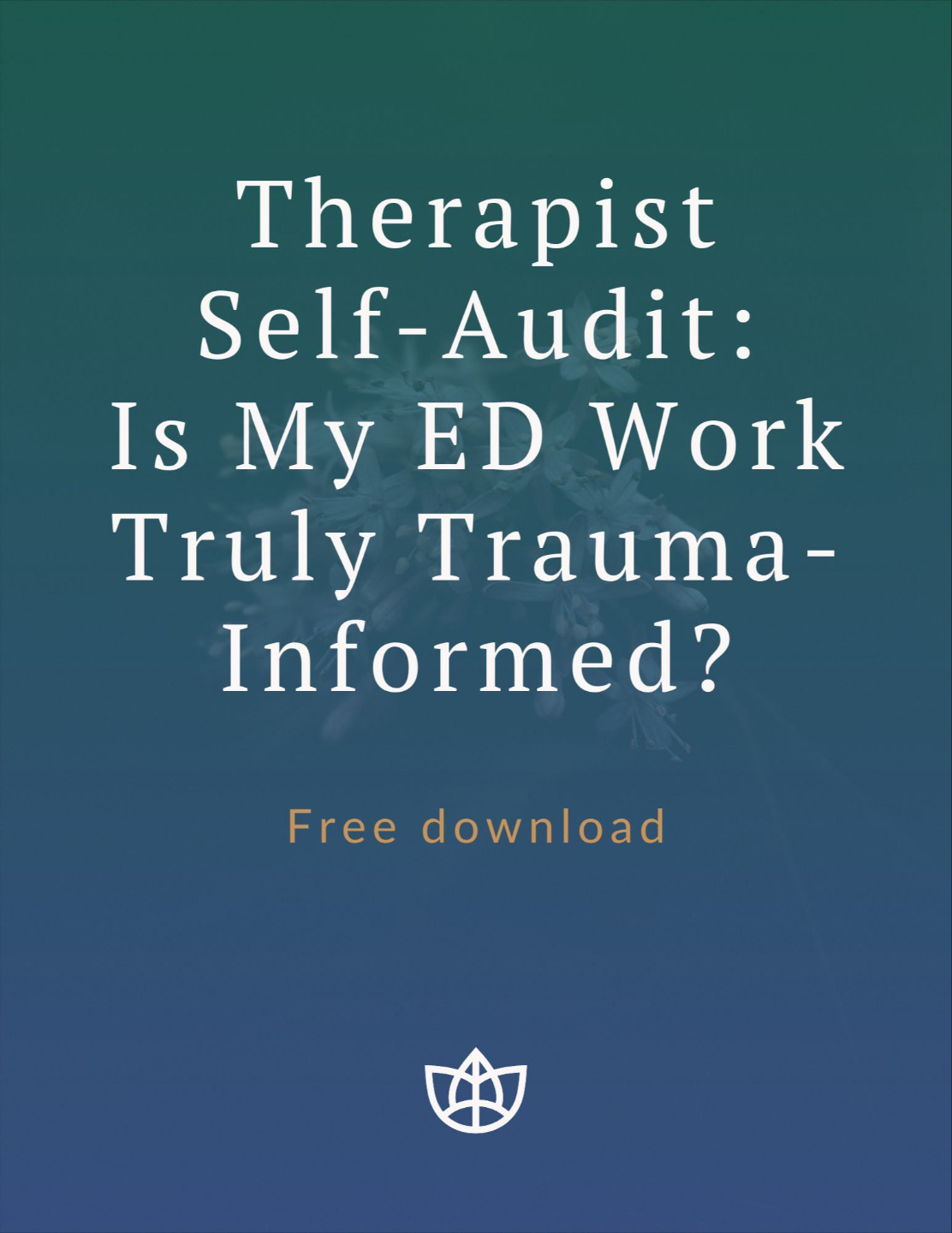Trauma Training
Trainer: Llyndsey Gregory, LCSW
On-Demand: Available with lifetime access for asynchronous learning. | This course was recorded on September 25th, 2025.

Practical Interventions You’ll Learn
- Learn to use the SCOFF, EAT-26, and EDE-Q assessments to appropriately diagnose, assess symptom severity, and determine level of care.
- Implement CBT cognitive restructuring to challenge distorted thoughts such as “I must be thin to be valued”.
- Use Exposure and Response Prevention (ERP) interventions to help clients consume “forbidden” foods without engaging in compensatory behaviors.
- Apply DBT emotion regulation techniques for impulsivity and intense emotions that fuel ED behaviors.
- Learn ACT interventions to reduce shame and avoidance of body-based distress, and help clients separate from intrusive ED thoughts to meaningful life goals.
- Integrate Family-Based Therapy (FBT) strategies such as parent-led refeeding and weight restoration techniques.
What You'll Learn in this Trauma-Informed Eating Disorder Course for Therapists
Eating disorders are some of the most misunderstood and overlooked mental health concerns, often hidden behind perfectionism, diet culture, or outdated stereotypes. This comprehensive trauma-focused training for therapists explores the powerful link between trauma and disordered eating, helping you understand how early adversity, attachment wounds, and chronic stress shape eating disorder presentations in clients across the lifespan.
In this practical and clinically grounded course, you’ll learn how to recognize the subtle and not-so-subtle signs of eating disorders, especially when masked by co-occurring trauma symptoms like dissociation, emotional numbing, or hypervigilance. We’ll break down the latest DSM-5 diagnoses, including Anorexia Nervosa, Bulimia Nervosa, Binge Eating Disorder, ARFID, and OSFED, while examining prevalence data, cultural factors, and risk considerations that intersect with trauma histories.
You’ll gain real-world screening tools to assess trauma-related risk factors, eating disorder severity, and the appropriate level of care. We’ll cover how to collaborate effectively with dietitians, physicians, and other professionals when safety, stabilization, or higher levels of care are needed.
Most importantly, this course goes beyond theory. Through case studies and clinical discussions, you’ll explore evidence-based, trauma-informed interventions, including CBT, DBT, ACT, and FBT, and learn how to tailor them to address both trauma and eating disorder symptoms in the therapy room.
Whether you’re new to eating disorder treatment or ready to deepen your trauma therapy skills, you’ll leave this training equipped with actionable strategies to help clients break free from shame, rebuild a sense of safety in their bodies, and move toward long-term healing.
Join us to become the therapist who notices what others miss, speaks up when it matters, and makes a lasting difference for clients living with the complex intersection of trauma and eating disorders.
About Your Trainer, Llyndsey Gregory, LCSW



